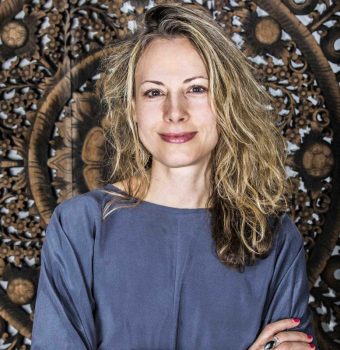
Over these last few months I have been struck by the importance of ENERGY management for our health, wellbeing, and happiness…
We need large amounts of energy not just to pursue our projects, goals and dreams, and build the life we want, but also to cope with the curve balls that life will inevitably throw our way. This is even more true as we age and our lives get more complicated, while in parallel, our energy reserves and health often dwindle.
I feel this in myself — the days I wake up full of energy, both physical, and mental, and get a lot done, are good days. However the days when I wake up exhausted and feeling foggy and unmotivated, are not nearly as productive or happy.
And on those less good days, I feel fragile, vulnerable to whatever piece of bad news or altercation comes my way. I feel that my margins and reserves are thin, and that I have just enough to get through my daily life, without any unpleasant surprises. The dissolution of my 20 year marriage was one of those unexpected, unpleasant events which knocked me off balance and taxed my already taxed reserves.
As I learn, post-separation, to look after myself and through therapy to engage in radical self care, I understand how important it is to build up stores of vital energy which can carry us through life, give us the steam we need to accomplish our goals, and the resilience we need to withstand the storms. These storms can be minor, such as a run-in with someone on the road, or they can be major, like illness, death, divorce, etc…
Energy is important not just to give us the physical and mental resilience to move forward, but if we take into account that our thoughts and feelings are themselves energetic phenomena, then the quality of our energy will influence the quality of our thoughts and feelings, and vice versa.
Energy management therefore is fundamental, and must be applied to all aspects of our lives — the biochemical, psycho-spiritual, and lifestyle behavioural.
In mainstream medicine, “energy medicine” tends to be overlooked, or dismissed as too “alternative” or “pseudo-scientific”. And yet, in traditional medicine — whether Chinese Traditional Medicine or Ayurvedic, having sufficient stores and circulation of energy (qi or prana in the respective Chinese and Indian traditions) is seen as fundamental to wellbeing, and a focus of treatment to restore health.
Despite the “pseudo-science” claims around traditional energy medicine and healing modalities, mainstream Western science and medicine has its own “energy medicine” in the form of mitochondrial function.
Each one of our cells contains thousands of organelles called “mitochondria” Pizzorno, J. (2014). Mitochondria-Fundamental to Life and Health. Integrative Medicine, [online], 13(2), pp.8-15. Available at: https://www.ncbi.nlm.nih.gov/pmc/articles/PMC4684129/, often known as the powerhouses, or batteries of the cells. Mitochondria process the foods (fats, sugars, proteins) that are then turned into the chemical energy (in the form of ATP –Adenosine Triphosphate — the energy currency of the cell Staughton, J. (2018). What is ATP (Adenosine Triphosphate)?, viewed 1st of May, 2019, <https://www.scienceabc.com/pure-sciences/what-is-atp-adenosine-triphosphate.html> that each cell needs to function. They produce about 90% of the energy cells needed to survive. Mitochondria also keep cells healthy by processing waste products, or pruning them (causing apoptosis), when they are not functioning properly.
Mitochondria need oxygen to function properly. Cambridge University MRC Mitochondrial Biology Unit. What are Mitochondria?, viewed on 1st of May, 2019, <http://www.mrc-mbu.cam.ac.uk/what-are-mitochondria> as well as good nutrition. Interestingly, as we learned in Eddie Lin’s article on Qigong, the Chinese symbol for qi is made of rice and air. In the same way, the mitochondria need nutrients and oxygen to function properly.
There is plenty of scientific evidence to show that mitochondrial dysfunction can contribute to disease and mental health issues, such as depression, dementia, schizophrenia, etc…Scaglia, F. (2010). The role of mitochondrial dysfunction in psychiatric disease. Developmental Disabilities Research Reviews, [online], 16(2), pp. 136-43. Available at: https://www.ncbi.nlm.nih.gov/pubmed/20818728 Anglin, R. (2016). Mitochondrial Dysfunction in Psychiatric Illness. Canadian Journal of Psychiatry, [online], 61(8), pp. 444-445. Available at: http://europepmc.org/articles/pmc4959647 Allen, J., Romay-Tallon, R., Brymer, K.J., Caruncho, H.J., and Kalynchuk, L.E. (2018). Mitochondria and Mood: Mitochondrial Dysfunction as a Key Player in the Manifestation of Depression. Frontier Neuroscience, [online], 12(386), pp. 1-13. Available at: https://www.ncbi.nlm.nih.gov/pmc/articles/PMC5997778/pdf/fnins-12-00386.pdf
So on a microscopic cellular level, dysfunctional mitochondrial energy production can correlate with mental and physical illness, and this is an exciting area of exploration in functional medicine. Given that the brain consumes a disproportionate amount of the energy our body needs to function (gobbling up 70% of our ATP production Pizzorno, J. (2014). Mitochondria-Fundamental to Life and Health. Integrative Medicine, [online], 13(2), pp.8-15. Available at: https://www.ncbi.nlm.nih.gov/pmc/articles/PMC4684129/, it makes sense that cellular energy production is especially important for our brains to function optimally, and that mitochondrial dysfunction is heavily implicated in neurodegeneration and mental health issues.
In Chinese and Ayurvedic medicine, disease — whether of the body or the mind — is an energetic dysfunction. In Western medicine, mitochondrial dysfunction and dysfunctions in energy metabolism are also energetic dysfunctions, and have been shown to link to mental health issues Zuccoli, G.S., Saia-Cereda, V., Nascimento, J.M., and Martins-de-Souza, D. (2017). The Energy Metabolism Dysfunction in Psychiatric Disorders Postmortem Brains: Focus on Proteomic Evidence. Frontier Neuroscience, [online], 11(493), pp. 1-14. Available at: https://www.ncbi.nlm.nih.gov/pmc/articles/PMC5594406/pdf/fnins-11-00493.pdf
Whether we look at energy as qi, prana, or ATP, we all feel better when we have more energy, and know that our bodies and minds work better when our energy metabolism is optimal. So how do we build, manage and store this energy so that we can fulfil our goals and dreams, and become more resilient to adversity, ageing, stress and illness?
Here is a non-exhaustive list of ways I boost and manage my energy, and when I don’t engage in these practices on a regular basis, my energy reserves — and therefore my health, vitality and happiness — dwindle, leaving me less resilient to stress and adverse circumstances.
- Get enough sleep
- Get the right nutrition
- Get the appropriate exercise
- Meditate
- Breathe correctly (remember sufficient oxygen is a vital component of mitochondrial energy production)
- Practise mind-body therapies such as yoga and qigong (both of which are explicit in their aims to manage energy — prana for yoga, qi for qigong).
- Right-size the amount of time spent alone vs with others (we all have different set points of how much time we need alone versus in company)
- Spend time in nature
- Infrared sauna (which reduces toxins and improves mitochondrial function) Whitten, A. The Top 22 Science-backed Benefits of Saunas, viewed on 1st of May 2019, <https://www.theenergyblueprint.com/benefits-of-saunas/> Nothing shifts the needle on my mental health and energy levels more than a session in the infrared sauna
- Near and medium infrared light therapy (which boost cellular energy by increasing levels of ATP Whitten, A. The Ultimate Guide to Red Light Therapy and Near-infrared Light Therapy, viewed on 1st of May 2019, <https://www.theenergyblueprint.com/red-light-therapy-ultimate-guide/>
- Nutritional supplements such as Pizzorno, J. (2014). Mitochondria-Fundamental to Life and Health. Integrative Medicine, [online], 13(2), pp.8-15. Available at: https://www.ncbi.nlm.nih.gov/pmc/articles/PMC4684129/
- NAD, which as Dr. Olds showed in his expose on NAD, is a key building block for cellular energy
- Magnesium
- CoQ10
- Carnitine
- Riboflavin
- Iron
- Manganese
- B1, B2, B3
- Cysteine (glutathione)
Regardless of the scientific tradition and the controversy around the “pseudo-science” of energy medicine (of which there are many different kinds), we could all do with being aware of the importance of managing our energy (both physical and mental) carefully and deliberately in order to build, store and use it to accomplish our goals and dreams, resist life’s curve balls, and nurture good mental health.
